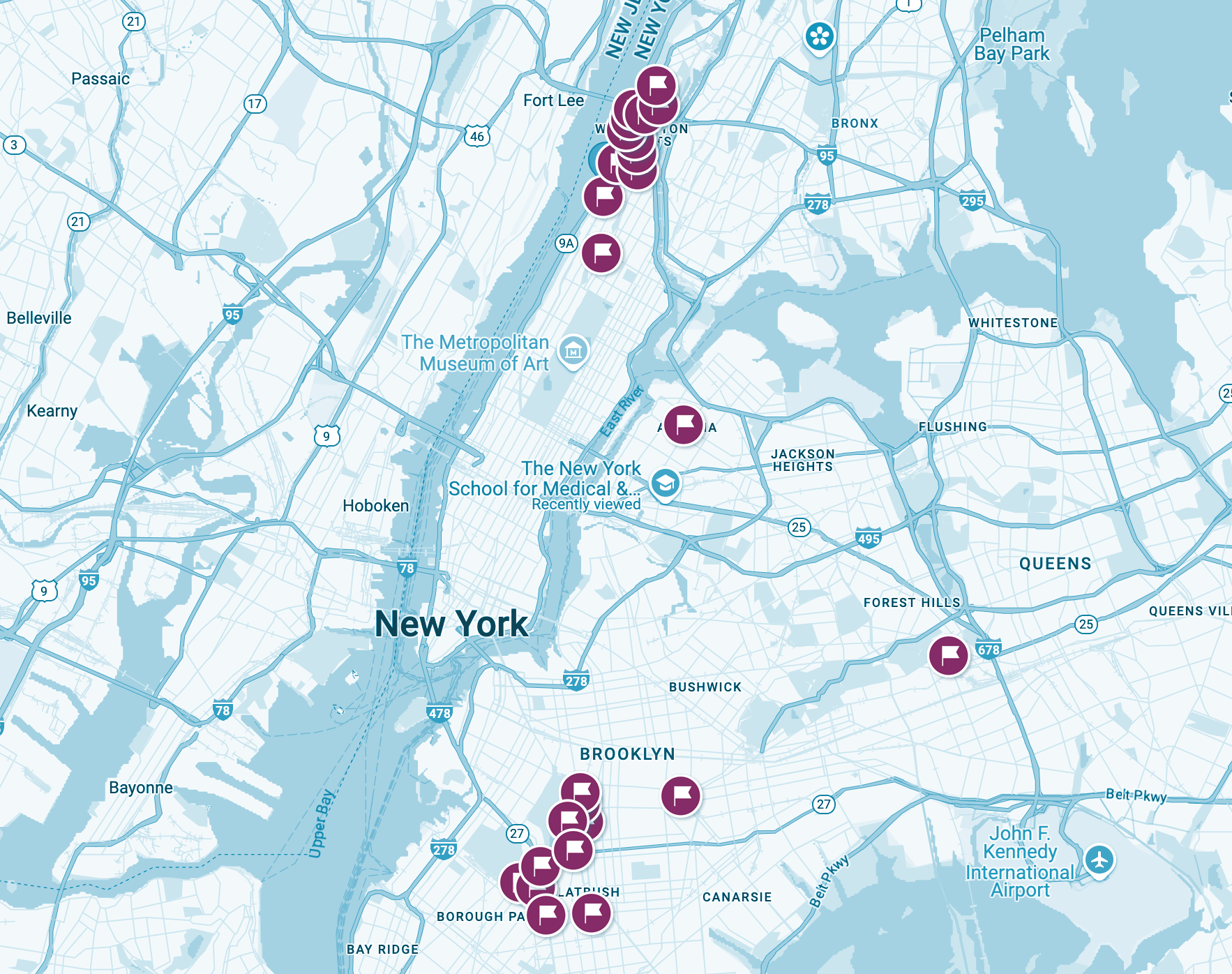OAG and HCR Compliance Program Will Reregulate 263 Illegally Deregulated Apartments, Reduce Rents in 43 Additional Units
New York Attorney General Letitia James and New York State Homes and Community Renewal (HCR) Commissioner RuthAnne Visnauskas today announced the return of 263 apartments to rent stabilization and reduction of rent for an additional 43 apartments throughout New York City. The apartments, located in 21 buildings in Central Brooklyn, Upper Manhattan, and Queens, were either illegally deregulated or were subjected to illegal rent increases by the former owners, who were landlords affiliated with the Sentinel Real Estate Corporation (Sentinel). Following an investigation, Attorney General James secured $4 million to preserve and expand affordable housing in New York City from the Sentinel-affiliated owners in August 2022. Before the settlement was reached, the former owners had sold some of their buildings to new owners after illegally deregulating units and increasing rents. In order to return these units to affordability, OAG and HCR developed a compliance program and worked with the new owners to reduce rents in more than 300 apartments, including 263 reregulated units.
“Rent-regulated apartments make it possible for countless New York families to find a safe and affordable place to live,” said Attorney General James. “The previous owners of these buildings broke the law to pad their pockets and denied hardworking families a rightful home. Because we were able to return these units to the rent regulation program, more than 300 families will be able to access the affordable housing they deserve. I thank the new owners for their cooperation and will continue to work with our partners at HCR to protect affordable housing across New York.”
“Thanks to the strong partnership between Attorney General James and our Tenant Protection Unit, we are recovering illegal profits and securing the rights of hundreds of New Yorkers whose homes were illegally deregulated by predatory landlords,” said Commissioner RuthAnne Visnauskas. “This case demonstrates very clearly that we will do everything in our power to protect New York’s rent-regulated housing stock and the rights of tenants everywhere as we support Governor Hochul’s efforts to make the state more affordable and more livable for all New Yorkers.”
Prior to June 2019, if landlords made improvements to rent-stabilized apartments, they could increase the regulated rents of those units. Increases were calculated based on the cost of those improvements through a system known as Individual Apartment Improvements (IAIs). Some property owners and landlords used IAIs to increase rents enough to bring them over the rent deregulation threshold and convert them to market-rate units in an attempt to increase the buildings’ profits.
Before the 27 affected buildings were purchased by the current owners, they were owned by landlords affiliated with Sentinel. These affiliates employed two now-defunct property management firms – Newcastle Realty Services, LLC (Newcastle) and Highcastle Management, LLC (Highcastle) – which falsely inflated IAI renovation costs for some rent-stabilized apartments so that they could deregulate them and charge tenants the market rate.
In some cases, Newcastle and Highcastle intentionally set the cost of labor for a renovation project to be equivalent to the amount necessary to deregulate a particular unit, regardless of the amount spent by the contractor. For example, an apartment in one building required $38,000 in IAIs to get over the deregulation threshold, while another apartment in the same building required $52,500 to deregulate. Both units received nearly identical renovations, but Newcastle and Highcastle reported the renovation expenses at $52,500 and $38,000, respectively, so they could deregulate the units and rent them at the market rate.
In August 2022, OAG entered into an agreement with the affiliates, securing $4 million for Attorney General James’ Affordable Housing Fund with the New York City Department of Housing Preservation and Development (HPD) and launching an audit of the rents of apartments still owned by the settling landlords. Following the settlement, OAG and HCR conducted their own audit of the apartments that were no longer owned by the settling affiliates but were nevertheless affected by the deregulation scheme. The OAG, in partnership with HCR, developed a program by which the new owners could work with OAG and HCR to move the units in the buildings they purchased from Sentinel back into compliance.

The 27 buildings involved in the OAG and HCR compliance program.
The 27 buildings involved in the OAG and HCR compliance program are:
- Brooklyn
- 921 Washington Avenue
- 941 Washington Avenue
- 80 Woodruff Avenue
- 2105 Foster Avenue
- 70 Dahill Road
- 230 Ocean Parkway
- 483 Ocean Parkway
- 100 Lefferts Avenue
- 65 Ocean Avenue
- 31 Ocean Parkway
- Manhattan
- 351 W 125th Street
- 612 W 144th Street
- 676 Riverside Drive
- 66 Ft. Washington Avenue
- 828 Riverside Drive
- 1090 Saint Nicholas Avenue
- 974 Saint Nicholas Avenue
- 80 Fort Washington Avenue
- 86 Fort Washington Avenue
- 651 W 188th Street
- 336 Fort Washington Avenue
- 130 Wadsworth Avenue
- 220 Wadsworth Avenue
- 854 West 180th Street
- 643 West 171st Street
- Queens
- 30-60 29th Street
- 118-80 Metropolitan Avenue

